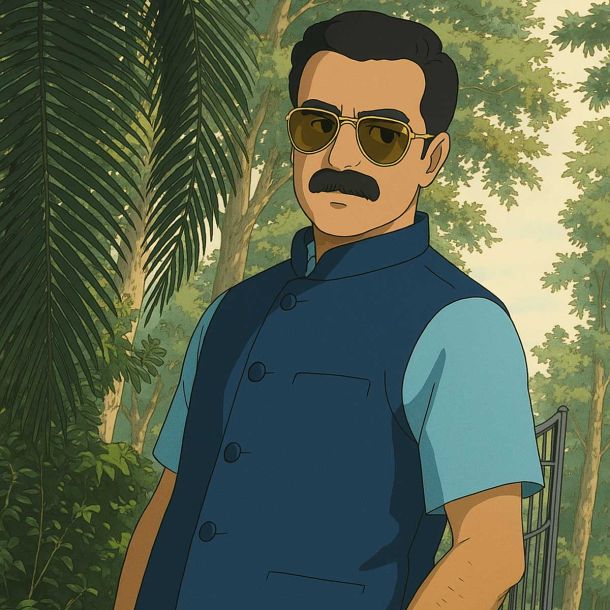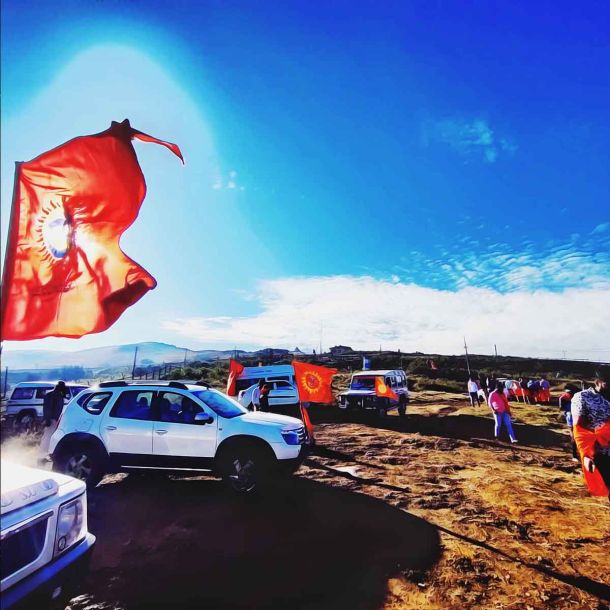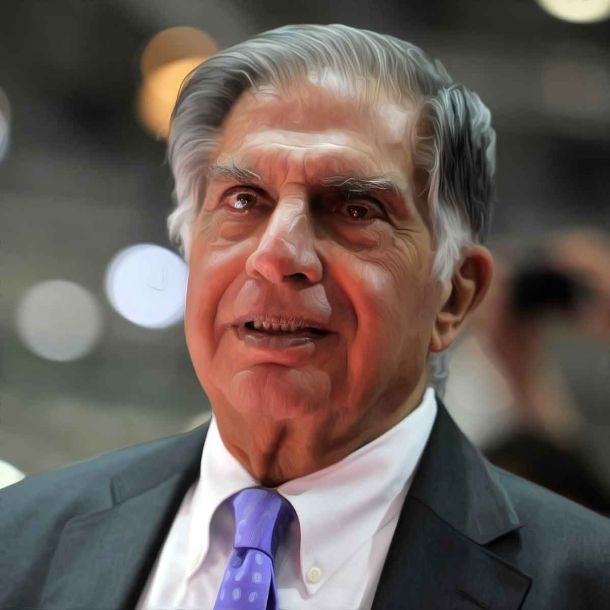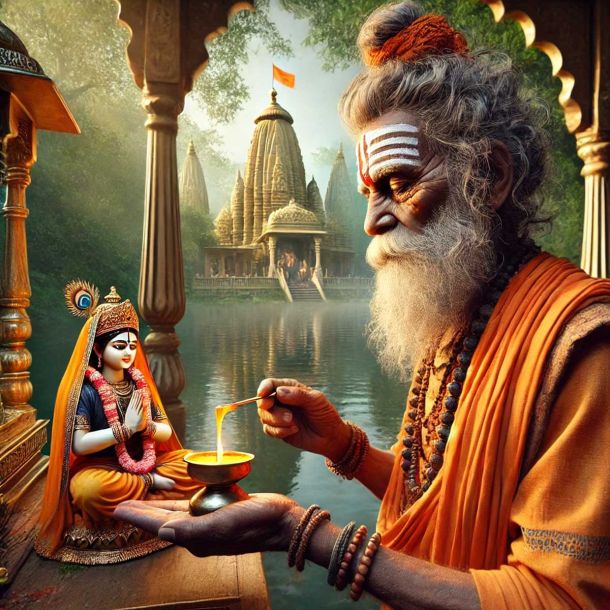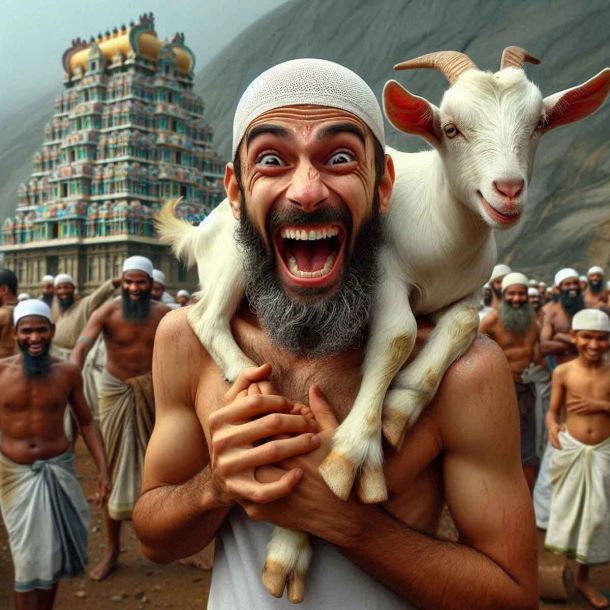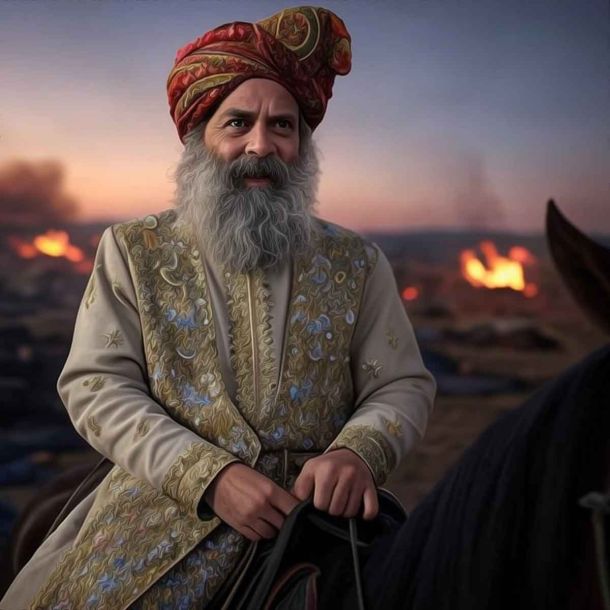More Coverage
Twitter Coverage
Satyaagrah
Written on
Satyaagrah
Written on
Satyaagrah
Written on
Satyaagrah
Written on
Satyaagrah
Written on
Join Satyaagrah Social Media
Hero of Pawankhind: Veer Maratha Bajiprabhu Deshpande, who led 300 Soldiers against 12000 Adilshahi Army defending Shivaji
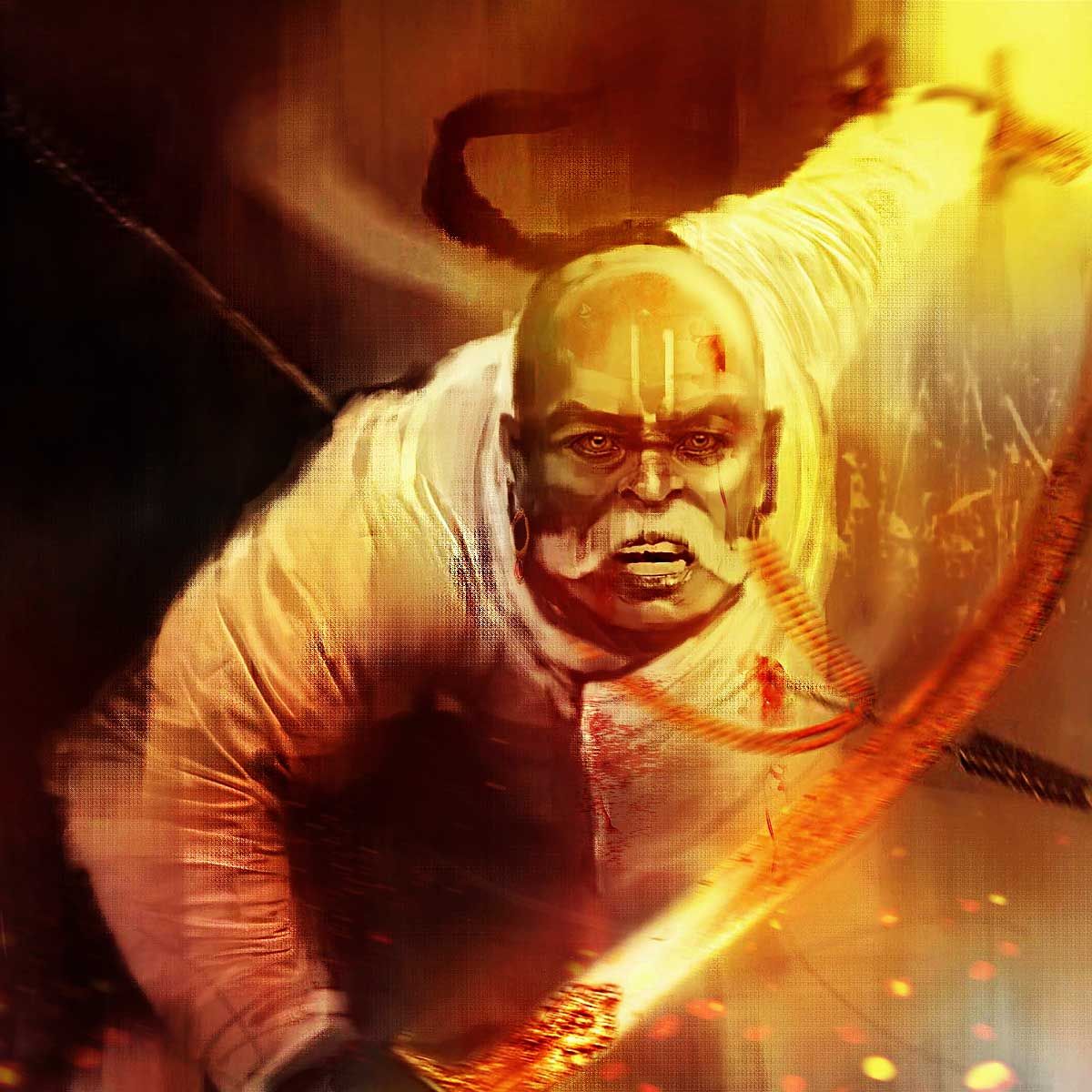
For any true Hindu and a lover of Bharath Varsh, the study of Chhatrapati Shivaji Maharaj’s life is awe-inspiring. Over and above being a great and ferocious warrior and in many ways a fore-runner in counter-Jehadi-terrorism in 17th century Bharath, Shivaji was a devoted son to his mother Jijau , a devoted Seeker (Bhakt) of Goddess Bhavani, and a champion protector of the weak and innocent. The daring exploits of this proud Maratha warrior king are extra-ordinary.
And in many of his exploits, Shivaji Maharaj had the valiant support and extraordinary sacrifices of his courageous men, who put the command and the dream of their leader for establishment of HINDAVI SWARAJ (Hindu Kingdom) over and above everything else they cherished and that included their personal possessions and families.
You must have heard about the 300 brave Spartans led by King Leonidas who fought bravely in battlefield against thousands of Persians. A film was produced based on this historic battle titled 300. I have watched it. Many of you might have watched it too. But have you heard about the brave 300 Maratha army led by Bajiprabhu Deshpande who fought bravely in battlefield against a 12000 Adilshahi army led by Siddi Masood?
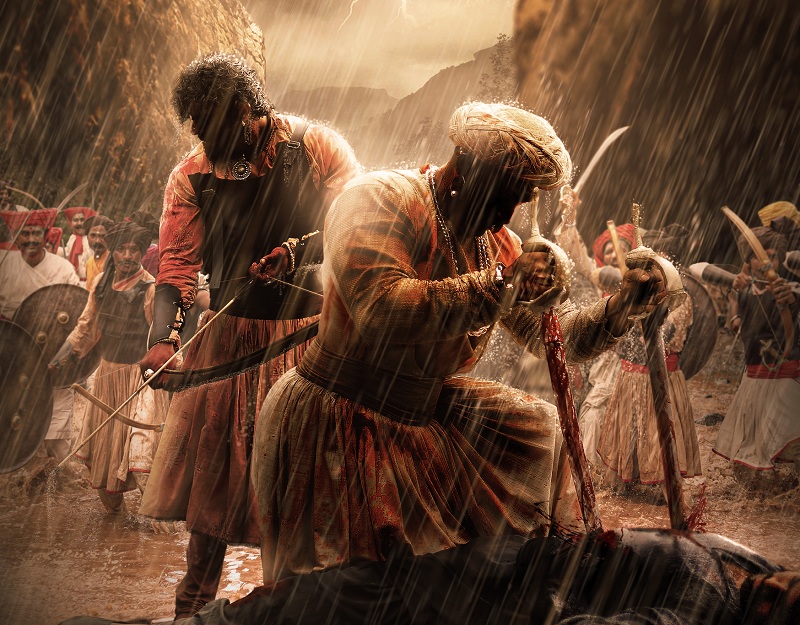 |
The soldier ratio was 1:40! The rear-guard battle which took place at a mountain pass in Pawankhind lasted for 15 hours until the last warrior of all of the 300 Marathas perished! Bajiprabhu Deshpande selflessly sacrificed his life to save the life of his king Chattrapati Shivaji and for the motherland. 4000 of the Muslim army were killed while the rest were heavily wounded. This deadly battle is not glorified in History text books!
Background of Bajiprabhu Deshpande
Bajiprabhu Deshpande was born into a Marathi Chandrasainya Kayastha Prabhu family around 1615 CE. Though socially proximate to the Maharashtrian Brahmin community, Bajiprabhu, since his childhood was more attracted towards martial arts. The tyranny of the Mughals had been plaguing India culturally, socially, and economically and the young Kayastha Prabhu boy was more interested in serving the country. Shivaji had meanwhile risen to power. Bajiprabhu Deshpande grabbed the opportunity to work under Shivaji.
Bajiprabhu had mastered the art of using the dandpatta, a sword weapon. The dandpatta, called a gauntlet-sword in English, is the pride of Maratha warriors. The patta has a long straight blade ranging in length from 10 to 44 inches with the gauntlet integrated in the sword as a hand guard. Maratha infantrymen, who were experts in using the dandpatta, used it in warfare against heavily armoured cavalry. Shivaji and Bajiprabhu Deshpande were renowned to be masters in the use of dandpatta.
By sheer dint of his skills in the art of warfare and his steadfast love for the motherland, Bajiprabhu rose to position in the Maratha army. Shivaji Maharaj appointed him as the military commander of South Maharashtra around the Kolhapur region.
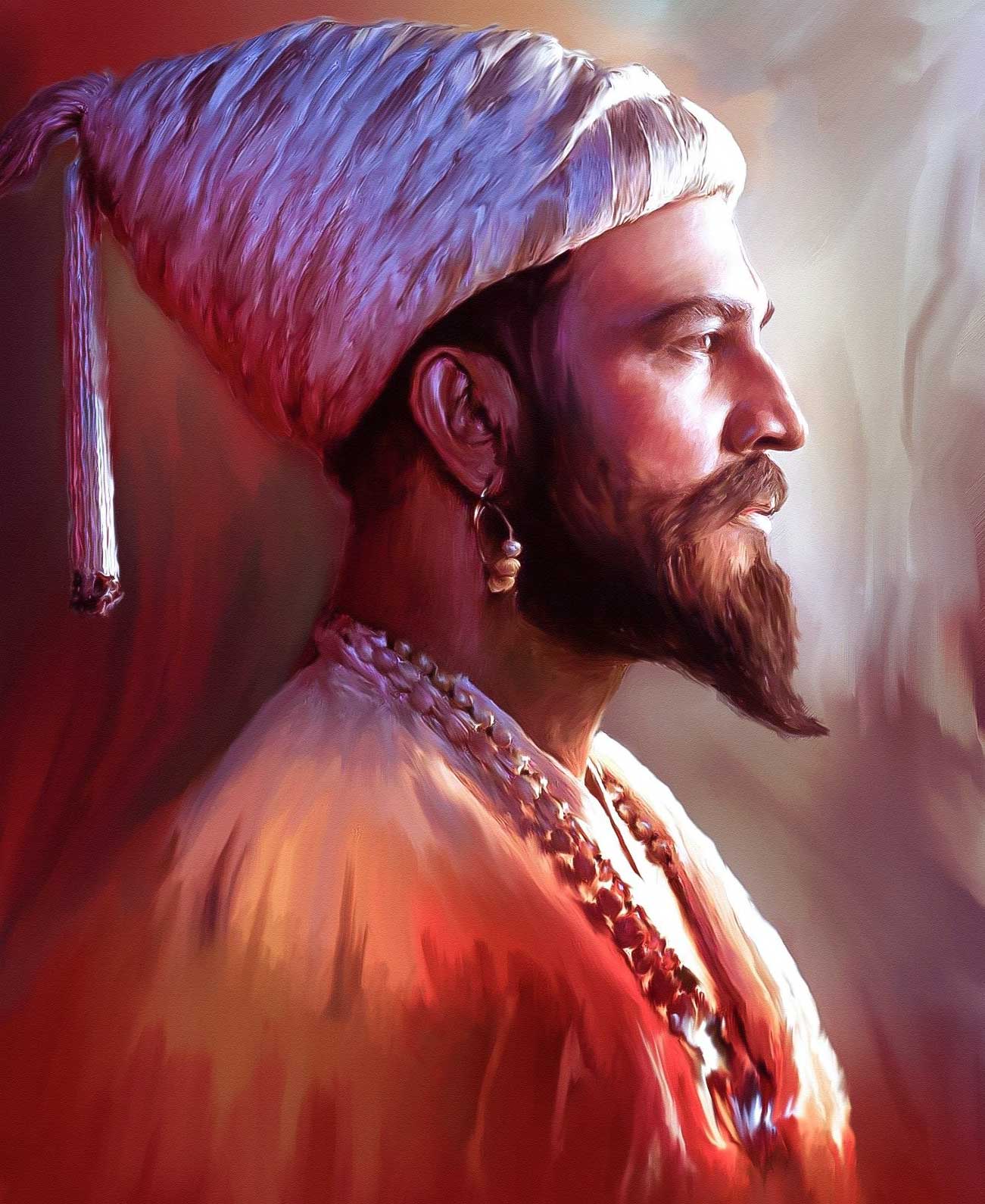 Shivaji raje Chhatrapati Shivaji Maharaj |
Afzhal Khan's plan to kill Shivaji
During this time, Ali Adil Shah II was the Sultan of Bijapur. The Adilshahi Sultanate dynasty was started by Yusuf Adil Shah in 1489 with capital at Bijapur. Their territory included the Western area of the Deccan region of Southern India. Afzhal Khan was the ablest of commanders of the Adilshahi army. In 1659, Afzal Khan led a huge army against Shivaji’s forces. Shivaji and his army were experts in fighting battles in hill areas rather than the plains. Moreover, his army was no match to the huge Bijapuri forces. Hence, he restricted his base in the hill forts. He moved to Pratapgad Fort in Satara, which was surrounded by dense jungles. Meanwhile, Afzhal Khan, who knew about Shivaji’s strengths and was weak in fighting battles in hilly terrains, started plundering villages and razing temples to the ground besides destroying moortis of the Hindu deities. The Muslim commander felt such actions would provoke Shivaji to come out in the open in the plains.
Meanwhile, leaders of both parties felt a battle between the two might lead to heavy casualties. Hence, Afzhal Khan offered for negotiations and a peace pact to which Shivaji agreed. Actually, it was the Muslim commander’s secret plan to kill Shivaji during the meeting and thereby subdue the Marathas without use of force. Afzhal Khan offered to meet Shivaji in person. The meeting place decided was Par, a village lying one mile south of Pratapgad Fort. A crest below Pratapgad Fort was chosen as the venue. The meeting was arranged with two personal bodyguards accompanying the leaders on each side.
There was a track record of Afzhal Khan deceiving negotiators during meetings. In 1639, he treacherously murdered Kasturi Ranga, the king of Sera, a small kingdom in the south of India, during a meeting. Shivaji went to meet Afzhal Khan after equipping himself with weapons hidden from view — bichu, a stiletto-like thin dagger and the wagh nakh (tiger claws), consisting of an iron finger-grip with four razor claws, which he concealed within his clenched fist. He wore armour under his clothes and a steel helmet under his turban.
In the meeting, Afzhal Khan applied his treacherous tactics and secretly attacked Shivaji during an embrace. Shivaji immediately reciprocated, disemboweling him with the wagh nakh and stabbing him with the bichu. A combat followed. Sambhaji Kavji, Shivaji’s bodyguard killed the heavily injured Afzhal Khan.
The post-Afzal-Khan slaying, Shivaji Maharaj and his men created havoc (“NAAK-MEIN-DUM“) on Adilshah’s powerful forces and harried and tormented them relentlessly with their ferocious guerilla tactics. Unleashing fierce counter-terrorism backed by good intelligence, the Marathas were a succor to all those suffering Hindu innocents on whom Adilshah’s jihadi army rained callous terror without respite like a never-ending nightmare.
Marathas captured Panhala Fort located near the city of Kolhapur. This fort was under the Bijapuri Sultanate from the beginning of the 16th century. Another Maratha force under the commandment of Netaji Palkar attacked Bijapur. The Adilshahi army foiled their attempts. Shivaji with few of his commanders and soldiers retreated to Panhala fort. And it was during these days that Shivaji Maharaj and his men had based themselves at the Panhala fort. This was the fort where Shivaji spent the next 500 plus days till Bajiprabhu Deshpande facilitated his safe passage to another location.
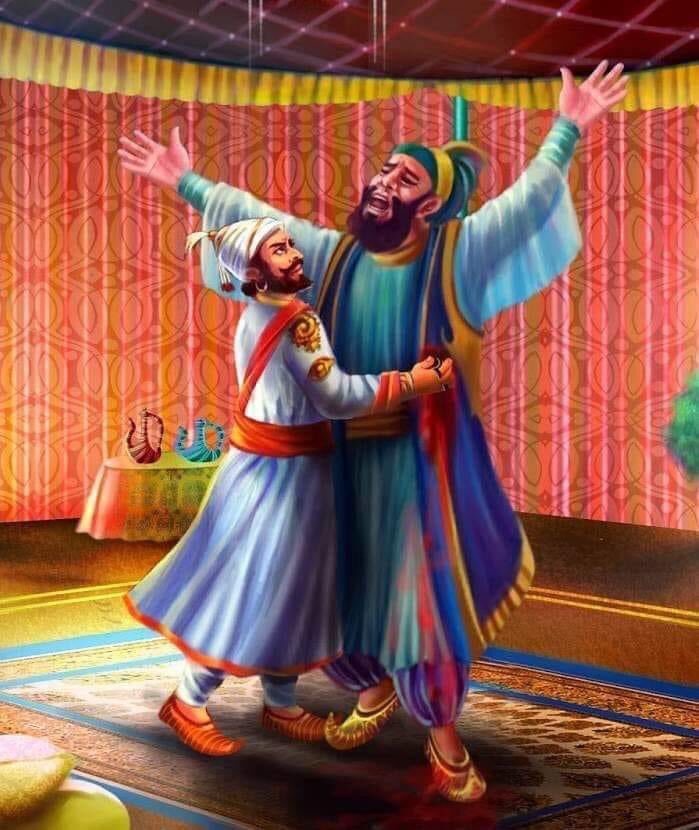 Shivaji Maharaj killed Terrorist Afzal Khan at the foot hill of the Pratapgarh on 10 Nov 1659 |
Shivaji escape plan
The Adilshahi force led by Siddhi Johar, an Abyssinian general, laid siege of Panhala Fort from all sides after they came to know about Shivaji’s whereabouts. Johar had come with a huge army and Shivaji’s puny force was no match to them. Hence Shivaji remained in the fort, strategizing to give a brave defense. Netaji Palkar made repeat attempts to break the Muslim army siege from outside, but in vain.
Meanwhile, at the Panhala fort, Bajiprabhu Deshpande chanced to come face to face with Shiva Nhavi, a barber of the Maratha forces. He had an uncanny resemblance with Shivaji. An idea clicked Deshpande's mind. He discussed the plan with Shivaji to which the latter agreed. The planning was made. Bajiprabhu Deshpande called Shiva Nhavi and asked him if he would disguise as Shivaji and facilitate the king escape from the fort. The general also told him that as he was Shivaji’s lookalike and his changed attire might further stamp his identity as the Maratha ruler, he might get caught by the Bijapuri forces. It might even lead to his execution by the Muslim forces. Shiva Nhavi readily agreed, offering himself to be martyred for the king and the motherland.
A plan was hatched at the Panhala Fort. It was decided that Bajiprabhu Deshpande and Shivaji along with a select band of the Maratha army would attempt to break through the Adilshahi siege at night and proceed towards Vishalgadh, a hill jagir of the Maratha Empire in Kolhapur. The Adilshahi forces might give a chase only when they could find out that Shivaji had fled, breaking the siege. To stop them from pursuing Shivaji, Shiva Nhavi would then let himself be captured. This would make the Adilshahi forces feel that they had captured the Maratha king!
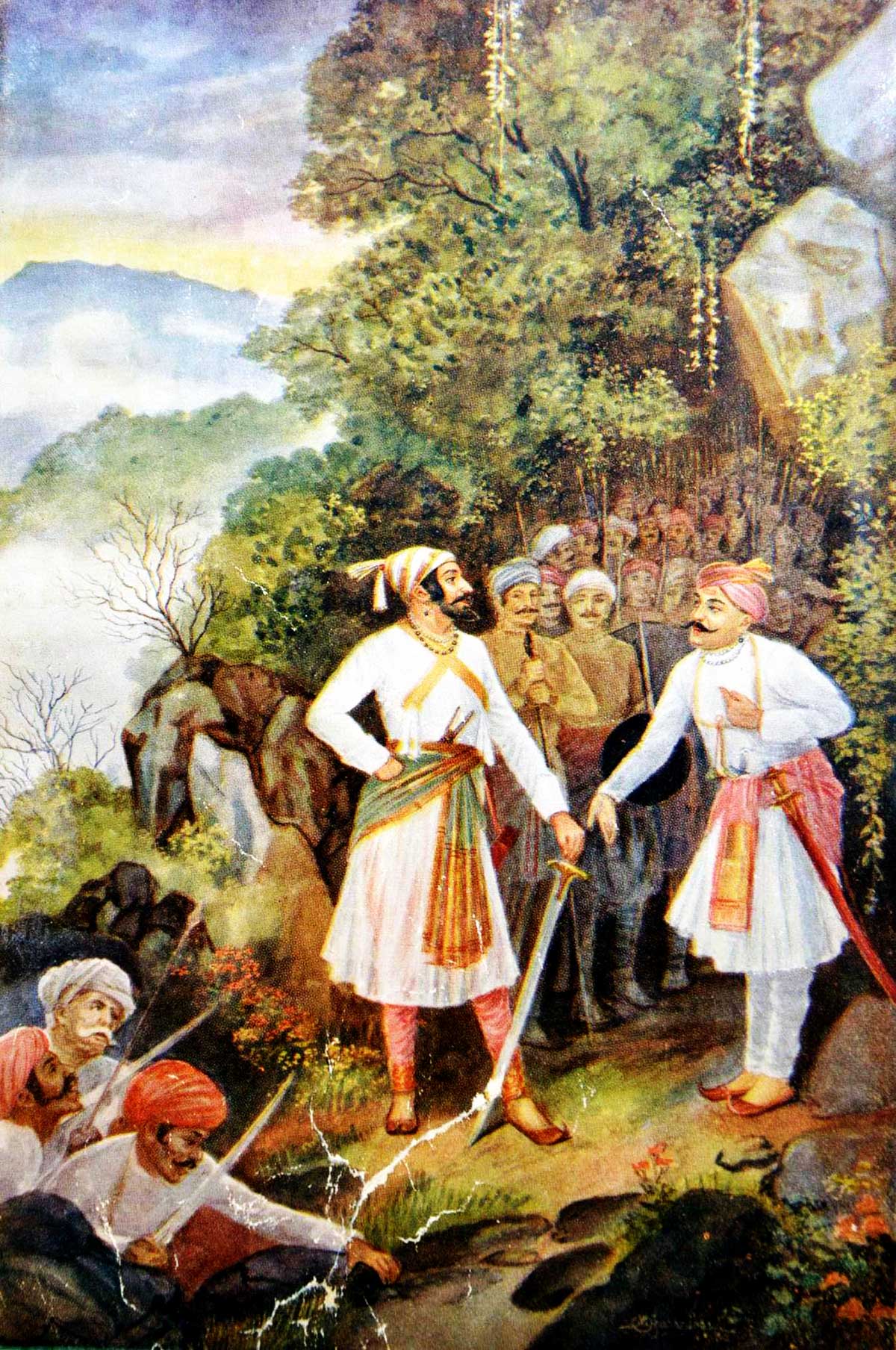 Shivaji Maharaj and Baji Prabhu at Pawan Khind |
The Towering stand of the mighty Warrior
July 13, 1660. It was Guru Poornima — a full moon night. The weather was stormy. A band of 600 select men, led by Bajiprabhu Deshpande and Shivaji broke through the siege. The Bijapuri forces were about to pursue the Maratha forces when Shiva Nhavi allowed himself to be captured. He was taken to the Adilshahi camp. Shiva Nhavi knew he might be put to death but he was bravely ready to meet the consequences. This gave safe passage for the Maratha army to escape.
The Muslim army soon realized their blunder. Immediately they set to action — 12000 well armed soldiers advanced fast towards the 600 Maratha army. The chase was led by Siddhi Masood, the son-in-law of Siddhi Johar. The march of fast approaching hoofs near the Ghodkhind Pass (Horse’s Pass) led Bajiprabhu Deshpande devise a plan immediately. Ghodkhind Pass was located seven to nine km ahead of Vishalgadh.
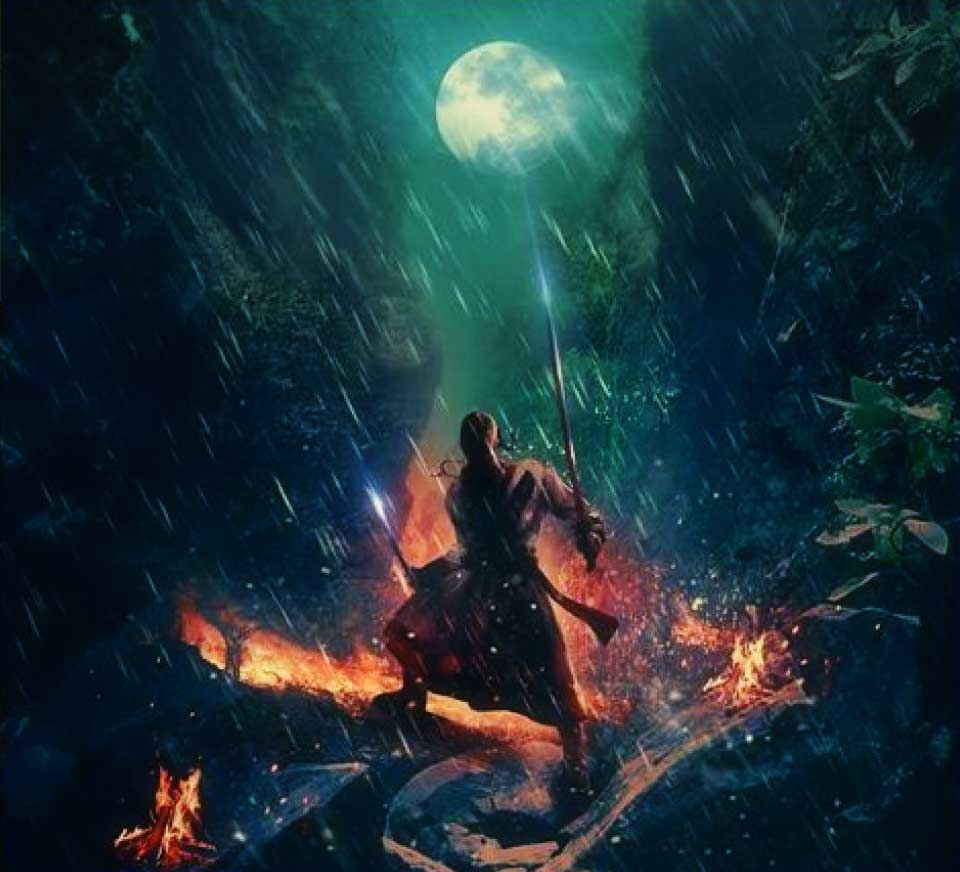 |
Bajiprabhu Deshpande let Shivaji and half of the troops escape to Vishalgadh fast and himself offered to stay back with the remaining soldiers at the Ghodkhind Pass to give resistance to the Adilshahi army. His brother Phulaji also offered to stay back to defend. Shivaji agreed.
The 300 brave Maratha army blocked the pass. A fierce battle between the Maratha and Adilshahi army followed. This place was also called Pawankhind, hence the christening, ‘The Battle of Pawankhind’. The valour displayed by the Marathas during this rear-guard action is unmatched in military history. One by one the Maratha soldiers were martyred. But the puny force of 300 soldiers badly injured the enemy forces.
At the end of 15 hours, all of the 300 Maratha soldiers attained martyrdom. 4000 of the Muslim army were killed while the rest were heavily wounded. Though grievously injured, Bajiprabhu Deshpande fought with two swords, using his two hands until he breathed his last. But this 15 hours of blocking the pass facilitated Shivaji’s safe passage to Vishalgadh.
Escape complete
When Shivaji Maharaj approached Vishalgad with 300 Maratha soldiers, the fort was already under seige by another Mughal sardar named Surve. Shivaji Maharaj with his 300 men had to defeat Surve to reach the fort. Shivaji Maharaj attacked the base of fort Vishalgad with such vigour that it was broken. After what seemed like an eternity to Baji and his Marathas, the much awaited cannon-shots boomed from the distant Vishalgad.
It was almost dawn and Baji was still on his feet but barely and that too in mortal danger because of his wounds. With the war cry of HAR HAR MAHADEV, Baji’s’ men cleared the pass, carrying their wounded leader with them. And then the valiant Bajiprabhu Deshpande passed away with a smile on his face, secure in the knowledge that Shivaji Maharaj had reached Vishalgad and in the process forever glorifying the annals of Maratha history and Hindu Bharath. There Baji enabled Shivaji Maharaj & the Hindavi Swarajya to survive and prosper against heavy odds.
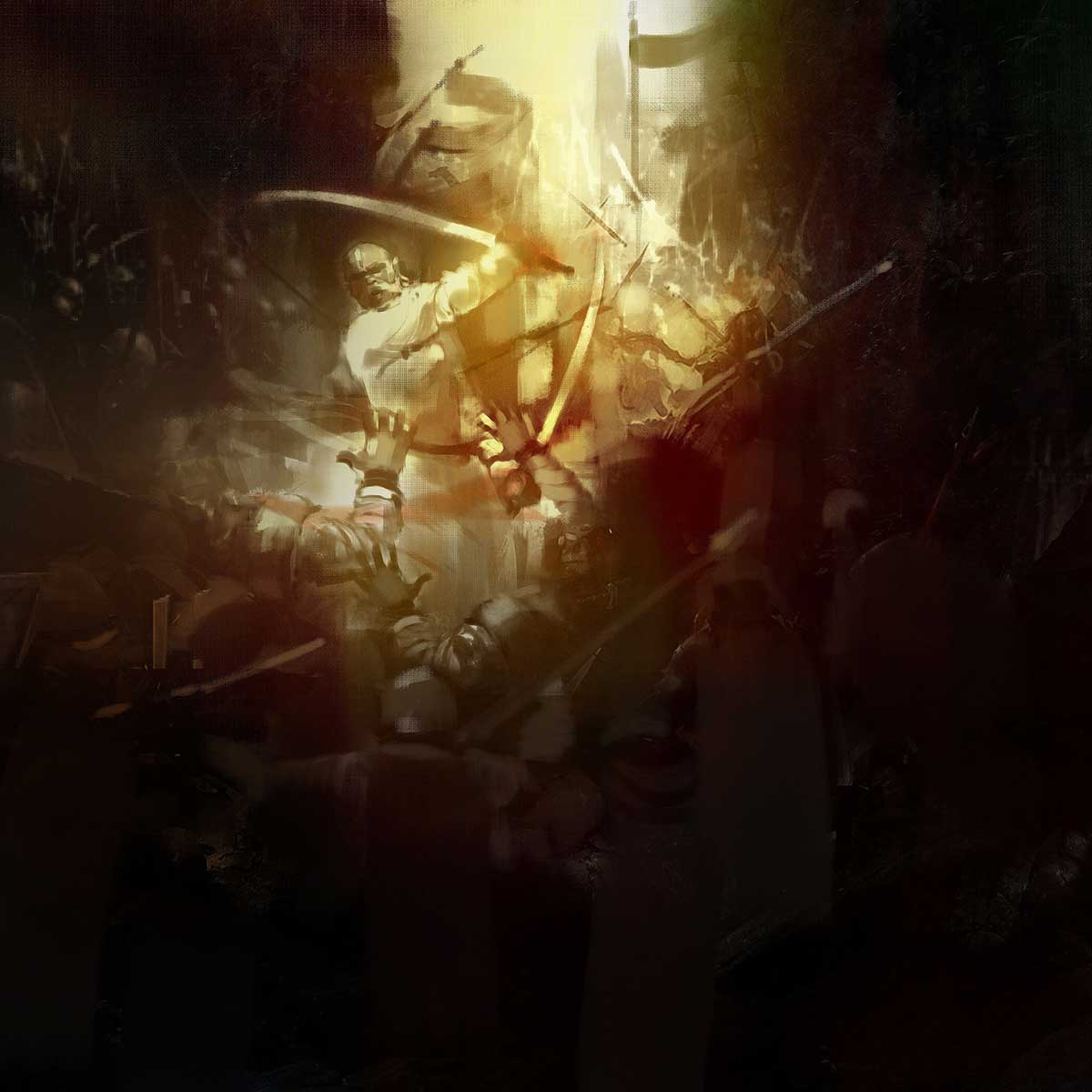 |
Honour: Baji becomes a Maratha Martyr
Shivaji Maharaj was with heavy heart when he came to know about the death of Baji, a soul-tugging emotion that he would hold on for the rest of his life. In Baji’s honour, he renamed the Ghod-kind pass as Pavan-Kind (Pavan meaning pure, purified by the blood of this great Maratha Hindu martyr). For the rest of his life, Shivaji Maharaj would also act as the guardian for Baji’s children.
The sword of honour was given to Bandal sena (Maratha Warriors) who fought vigorously with Bajiprabhu Deshpande. Shivaji Maharaj personally visited the house of slain Baji Prabhu, situated in the village of Kasabe Sindh near Bhor in the Pune district. His elder son was offered job as chief of a section. Other 7 sons were given honour of the Palkhi. Son of Slain Sambhaji Jadhav, Dhanaji Jadhav was inducted in the forces. Shivaji Maharaj also gave “manache pahile paan” (“Honor of the Court”) to Baji Prabhu’s family.
The sacrifice of Bajiprabhu Deshpande and Shiva barber is a legend itself. Even today many youths from Maharashtra trek on the route taken by Shivaji Maharaj between the forts of Panhala and Vishal Gadh. The distance is around 70 km. The battle of Pavan Khind (Panhala) has been recited as folklore in Maharashtra in many awe-inspiring renditions.
Salute to the brave Bajiprabhu Deshpande and the valorous 299 Maratha soldiers. Salute to Shiva Nhavi. Jai Shivaji! Jai Hind!!
References:
mungfali.com
thepositiveindia.com - By Shivani Rajwade
hindujagruti.org - Ashadh Shuddha Dwadashi, Kaliyug Varsha 5112
Saffron Swords: Centuries of Indic Resistance to Invaders - Manoshi Sinha Rawal, Yogaditya Singh Rawal
 Support Us
Support Us
Satyagraha was born from the heart of our land, with an undying aim to unveil the true essence of Bharat. It seeks to illuminate the hidden tales of our valiant freedom fighters and the rich chronicles that haven't yet sung their complete melody in the mainstream.
While platforms like NDTV and 'The Wire' effortlessly garner funds under the banner of safeguarding democracy, we at Satyagraha walk a different path. Our strength and resonance come from you. In this journey to weave a stronger Bharat, every little contribution amplifies our voice. Let's come together, contribute as you can, and champion the true spirit of our nation.
 |  |  |
| ICICI Bank of Satyaagrah | Razorpay Bank of Satyaagrah | PayPal Bank of Satyaagrah - For International Payments |
If all above doesn't work, then try the LINK below:
Please share the article on other platforms
DISCLAIMER: The author is solely responsible for the views expressed in this article. The author carries the responsibility for citing and/or licensing of images utilized within the text. The website also frequently uses non-commercial images for representational purposes only in line with the article. We are not responsible for the authenticity of such images. If some images have a copyright issue, we request the person/entity to contact us at This email address is being protected from spambots. You need JavaScript enabled to view it. and we will take the necessary actions to resolve the issue.
Related Articles
- Taimur was attacked and defeated by 20 year old Rampyari Gurjar and her army of 40,000 women
- Assam King Prithu who badly defeated Bakhtiyar Khilji, destroyer of Nalanda University in Battle of Kamrup in 1206 CE
- How Chhatrapati Shivaji Maharaj was establishing Hindu Samrajya by concluding centuries of Islamic oppression - Historian GB Mehandale destroys secular propaganda against Hindu Samrajya Divas
- Valiant Marathas and the far-reaching effects of the loss of 3rd battle of Panipat: Jihad of the temple destruction
- The Spiritual Centre of Hindu Society - Defence of Hindu Society
- Dangers of losing our identity: Guru Tegh Bahadur forgotten and Aurangzeb being glorified
- If only India’s partition chilling wound was not enough, Gandhi did his last protest again only to blackmail India into giving 55 crores to Pakistan, dragged Hindu, Sikh refugees seeking shelter in mosques to die in cold: And we call him Mahatma, not for
- Genghis Khan's decision to not invade Bharat (land of fabulous wealth) has perplexed historians for centuries: Mystery revealed
- Moplah Genocide of the Malabar Hindus, 1921: Thousands of Hindus slaughtered
- Jhalkaribai: The Indian Rebellion Of 1857 Who Took on British Forces Disguised as Laxmibai
- To be on the wrong side of history is a choice – How 21st-century invaders are capturing Chhatrapati Shivaji’s forts the way even Mughals didn’t and attempting to reclaim an invader identity unapologetically
- The Character of Muslim Rule in India - The Story of Islamic Imperialism in India
- Our first true war of independence lie forgotten within the fog of time and tomes of propaganda: Sanyasi Rebellion, when "renouncers of the material world" lead peasants in revolt against British and fundamentalist islamic clans
- Kashi symbolizes the unshakeable plasticity and unity of Hindus - presence of Padmesvara stones and Padmesvara inscription in the Lal Darwaza mosque, attests further that Kashi’s Islamic monuments are built on temple remains
- Busting the myth of “glories” of the Mughal Empire and its economic superiority as fantasized by Indian Marxist and Liberal historians
